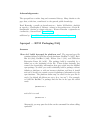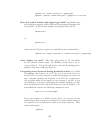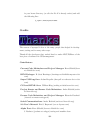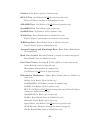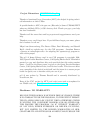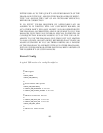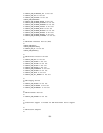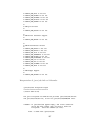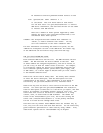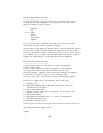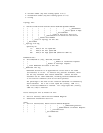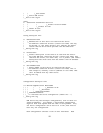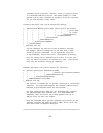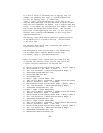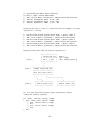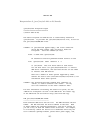An alternative and more permanent method would be to add
none /proc/bus/usb usbfs defaults 0 0
to /etc/fstab. This will mount usbfs at each reboot.
You can then issue ‘cat /proc/bus/usb/devices‘ to extract
USB device information, and user mode drivers can use usbfs
to interact with USB devices.
There are a number of mount options supported by usbfs.
Consult the source code (linux/drivers/usb/inode.c) for
information about those options.
**NOTE**: The filesystem has been renamed from "usbdevfs" to
"usbfs", to reduce confusion with "devfs". You may
still see references to the older "usbdevfs" name.
For more information on mounting the usbfs file system, see the
"USB Device Filesystem" section of the USB Guide. The latest copy
of the USB Guide can be found at http://www.linux-usb.org/
THE /proc/bus/usb/BBB/DDD FILES:
--------------------------------
Each connected USB device has one file. The BBB indicates the bus
number. The DDD indicates the device address on that bus. Both
of these numbers are assigned sequentially, and can be reused, so
you can’t rely on them for stable access to devices. For example,
it’s relatively common for devices to re-enumerate while they are
still connected (perhaps someone jostled their power supply, hub,
or USB cable), so a device might be 002/027 when you first connect
it and 002/048 sometime later.
These files can be read as binary data. The binary data consists
of first the device descriptor, then the descriptors for each
configuration of the device. That information is also shown in
text form by the /proc/bus/usb/devices file, described later.
These files may also be used to write user-level drivers for the USB
devices. You would open the /proc/bus/usb/BBB/DDD file read/write,
read its descriptors to make sure it’s the device you expect, and then
bind to an interface (or perhaps several) using an ioctl call. You
would issue more ioctls to the device to communicate to it using
control, bulk, or other kinds of USB transfers. The IOCTLs are
listed in the linux/usbdevice_fs.h file, and at this writing the
source code (linux/drivers/usb/devio.c) is the primary reference
for how to access devices through those files.
Note that since by default these BBB/DDD files are writable only by
root, only root can write such user mode drivers. You can selectively
grant read/write permissions to other users by using "chmod". Also,
usbfs mount options such as "devmode=0666" may be helpful.
208



